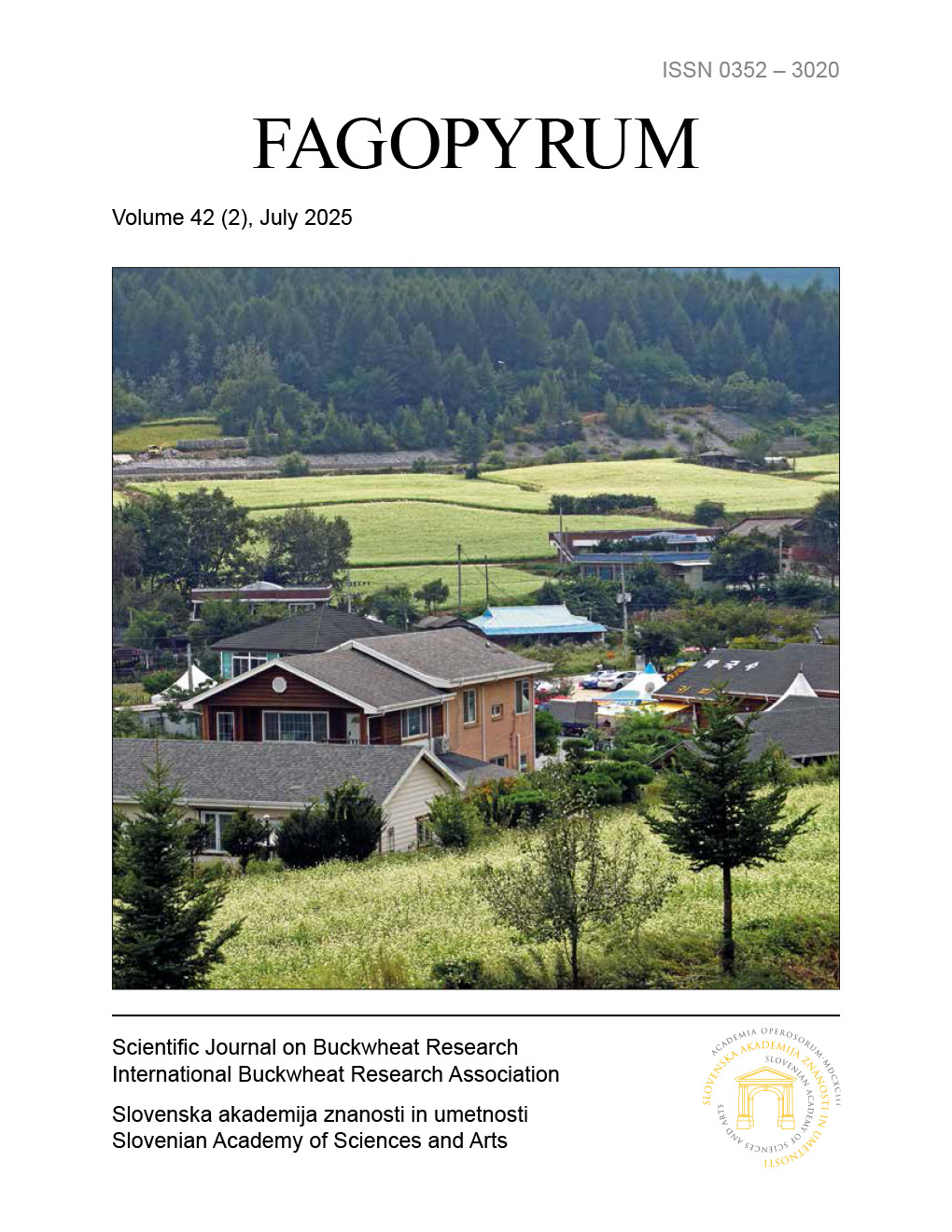Antigenotoxic Effects of Tartary and Common Buckwheat Extracts, Rutin, and Quercetin on DNA Damage Induced by the Dietary Mutagen Acrylamide
DOI:
https://doi.org/10.3986/fag0048Keywords:
common buckwheat, Tartary buckwheat, DNA damage, acrylamide, antigenotoxicAbstract
The antigenotoxic effects of methanolic extracts of Tartary (Fagopyrum tataricum Gaertn.) and common buckwheat (Fagopyrum esculentum Moench) flour were evaluated against acrylamide-induced DNA damage. Acrylamide, a toxic food contaminant, was first identified in 2002 following its detection in Swedish food products. Our findings demonstrate that extracts from both buckwheat species significantly reduced DNA strand breaks. Tartary buckwheat contains higher levels of rutin, quercetin, and polyphenols, and exhibits greater antioxidant activity compared to common buckwheat. Due to endogenous rutin-degrading glucosidase activity, part of the rutin was enzymatically converted into quercetin. Processing generally decreased antioxidant activity, with the exception of wheat bread, where a slight increase was observed, likely attributed to Maillard reaction products.
We confirmed that acrylamide induces genotoxic effects in HepG2 cells at all tested concentrations (0.3125, 0.625, 1.25, and 2.5 mM) after 24 hours of exposure, and that methanolic buckwheat extracts effectively reduced the formation of acrylamide-induced DNA damage. The extract from Tartary buckwheat demonstrated the highest antigenotoxic activity, surpassing even pure rutin or quercetin at higher concentrations. These results suggest that although thermal processing can generate potentially harmful compounds, such as acrylamide, food matrices may simultaneously contain bioactive components capable of counteracting or mitigating such adverse effects.
Downloads
Published
Issue
Section
License
Copyright (c) 2025 Fagopyrum

This work is licensed under a Creative Commons Attribution-NonCommercial-NoDerivatives 4.0 International License.





